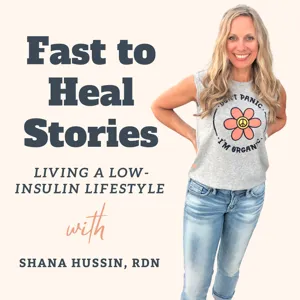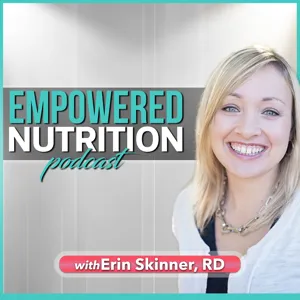Podcast Summary
Exercise and Blood Sugar Control: Regular physical activity, whether before or after meals, can significantly improve blood sugar response. The type and intensity of exercise matter, with more vigorous activities offering additional benefits.
Maintaining stable blood sugar levels is essential for overall health and well-being. Exercise plays a crucial role in controlling blood sugar, reducing the risk of inflammation, aging, and type 2 diabetes. Regular physical activity, whether before or after meals, can significantly improve blood sugar response. Additionally, the type and intensity of exercise matter, as more vigorous activities can provide additional benefits, such as maintaining muscle mass and bone health. Blood sugar, as a primary energy source for the brain, should be kept within a tight range to ensure optimal brain function and overall health.
Maintaining Blood Sugar Levels: Role of Food: Food, particularly carbohydrates, plays a crucial role in maintaining blood sugar levels. Our body produces insulin to store excess sugar as glycogen, and understanding blood sugar responses to meals can impact our health.
Our body goes through a complex process to maintain a regular amount of sugar in the bloodstream, and food plays a significant role in this process. When we wake up, our body has used up the sugar in our blood, so our liver produces more sugar and releases it. When we eat, especially carbohydrates, our body produces insulin to help store the excess sugar in our muscles and liver as glycogen. Understanding blood sugar responses to meals can provide insight into our health, and rapid digesting carbohydrates can cause significant increases in blood sugar levels. Controlling blood sugar levels is essential to ensure proper body function. If we cannot manage it effectively, it could lead to health issues.
Aging and insulin sensitivity affect blood sugar control: As we age, our bodies become less sensitive to insulin, leading to increased difficulty in managing blood sugar levels. Women, especially during menopause, experience heightened blood sugar responses. Regular exercise, including light intensity workouts, can help manage blood sugar levels both during and after workouts, as well as long-term.
As we age, our bodies become less sensitive to insulin, leading to more difficulty in controlling blood sugar levels. This insensitivity is particularly noticeable during adolescence due to growth hormones and during menopause due to hormonal changes. Women, in particular, experience a significant increase in blood sugar response to standard meals during menopause. However, exercise can help manage blood sugar levels, with immediate effects during exercise, short-term effects post-exercise, and long-term benefits from regular training. Light intensity exercises like fidgeting or knee bobs can also significantly lower blood sugar response after meals.
Fidgeting and walking help manage blood glucose levels: Fidgeting lowers blood sugar by 30% and walking by 50%. Activating more muscle groups increases effect. High-intensity exercises offer additional benefits.
Incorporating both short bouts of fidgeting and regular short walks throughout the day can significantly help manage blood glucose levels. While fidgeting can lower blood sugar by about 30%, walking can lower it by approximately 50%. The more muscle groups activated during physical activity, the greater the effect on blood sugar. Additionally, high-intensity exercises like jogging or running can lead to additional benefits such as using up muscle carbohydrate stores and producing an adrenaline response. Our bodies have multiple fuel sources, including muscle stores, liver glycogen, and the food we consume. Understanding these sources can help optimize blood sugar management throughout the day.
Understanding the body's response to intermittent fasting and stress: During intermittent fasting, the body uses fat for fuel instead of carbohydrates, maintaining stable blood sugar. However, exercise or stress can cause the liver to produce excess sugar, leading to a spike. Individual responses may vary, and prolonged fasting can result in ketone production as an alternative fuel source for the brain.
During intermittent fasting, the body switches from using carbohydrates as fuel to using fat. This helps maintain a stable blood sugar level. However, after exercise or during stressful situations, the liver may continue producing excess sugar, leading to a spike in blood sugar. Jonathan's experience of maintaining a flat blood sugar level despite hunger and exercise is due to his muscle using fat as fuel and his liver providing sugars for his brain. Heather added that some people may experience a small peak in blood sugar upon waking or during stressful situations, even without eating food. This is likely due to an adrenaline release causing the liver to produce extra sugar. It's important to note that prolonged fasting can lead to the production of ketones as an alternative fuel source for the brain. Overall, understanding the body's response to intermittent fasting and stress can help individuals make informed decisions about their eating habits and metabolic health.
Fasting before exercise: A new approach for blood sugar control: Fasting before exercise could improve blood sugar control by utilizing energy reserves and enhancing metabolic health, but individual differences might affect its effectiveness. More research is needed to optimize timing and frequency for various demographics.
Fasting before exercise could be beneficial for blood sugar control, even if it goes against traditional beliefs. This approach can help the body utilize its energy reserves and improve metabolic health. However, individual differences, particularly in how men and women use fat as fuel, might impact the effectiveness of this strategy. More research is ongoing to determine the optimal timing and frequency of exercise for various demographics. In the meantime, those concerned about blood sugar control may consider experimenting with fasted exercise and monitoring their body's response. Regular exercise, regardless of meal timing, remains crucial for overall metabolic health.
Enjoyable activities improve blood sugar control: Find enjoyable exercises to improve blood sugar control. Low-intensity activities provide immediate benefits, while high-intensity activities lead to long-term adaptations for better control.
To improve blood sugar control through exercise, find activities you enjoy and can do regularly. Low-intensity activities, such as fidgeting, walking, and household chores, have immediate effects and can help lower blood sugar levels after meals. Higher-intensity activities, like running, not only provide immediate benefits but also lead to long-term adaptations, improving muscle and liver function for better blood sugar control. The distinction between heavy and high-intensity exercises is not significant for blood sugar control. Both types increase sugar uptake into muscles and heighten muscle sensitivity to insulin, leading to improved blood sugar control for days after the exercise session. These effects are due to increased blood flow to muscles and reduced muscle glycogen stores, which stimulate the muscle to take up more sugar from the bloodstream.
Increase muscle glucose transporters through daily activities: Regular physical activity, even small movements, can boost muscle glucose transporters and improve energy use, while also benefiting blood fat levels.
Regular physical activity, not just structured exercise, can help increase the number of glucose transporters in your muscles, allowing more sugar to enter and be used for energy. For busy individuals, incorporating small movements into daily activities can be a more sustainable and enjoyable approach than traditional exercise. Regarding blood fats, exercise can help lower both blood sugar and blood fat levels after meals, unlike diet where a reduction in one may be offset by an increase in the other. Fats in the blood come in various forms and do not dissolve easily, so they require carriers. Sarah, an expert in the field, can provide further insights into the specific types of blood fats and their implications.
Postprandial Lipemic State: The Effects of Fat Consumption on the Body: Consuming fat takes longer to be processed than carbs, leading to elevated blood fat levels for hours. Exercise and certain foods, like polyphenols, can help mitigate negative health effects during this state.
Our bodies respond differently to the consumption of carbohydrates and fats, with fat taking longer to be processed and circulate in the blood. This postprandial state, where blood fat levels are elevated after a meal, can last for several hours, leading to potential negative health effects such as oxidative stress and inflammation. However, strategies like exercise and consuming certain foods and nutrients, such as polyphenols, can help mitigate these effects. It's important to note that exercise not only helps lower blood fat levels but also increases the body's natural antioxidant capacity, providing additional protection against negative health effects. Overall, understanding the postprandial lipemic state and its implications can help individuals make informed choices about their diet and lifestyle to promote optimal health.
Impact of Exercise on Blood Sugar and Fat: Exercise, regardless of intensity, can lower blood fat levels by up to 50% the next day, and help manage blood sugar. Do something daily, after meals, and engage in higher intensity activities for long-term benefits.
Regular exercise, regardless of intensity, can significantly impact blood sugar and fat levels. Exercise can help lower blood fat levels, even after a single session, with substantial reductions of up to 50% the next day. This effect is particularly noticeable for those who need it most. While some calorie deficit contributes to this effect, exercise has an even greater impact beyond just the calorie burn. To manage blood sugar and potentially blood fat, Javier recommends three tips: do something every day, even if low intensity, try to do it after a meal; and if able, engage in higher intensity activities for longer-lasting adaptations. Regular exercise, whether low or high intensity, plays a crucial role in maintaining healthy blood sugar and fat levels.
Insights into personalized health and wellness from Zoe: Zoe, a science and nutrition company, provides valuable insights into personalized health and wellness. Visit joinzoe.com/podcast for a 10% discount and continue the conversation on Instagram or Facebook.
Learning from today's episode is that Zoe, a science and nutrition company, offers valuable insights into personalized health and wellness. If you're intrigued and want to learn more, visit joinzoe.com/podcast and enjoy a 10% discount on your purchase. Your feedback, in the form of a review, is appreciated as it helps us continue bringing you insightful content. For any unanswered questions from this episode, feel free to reach out on Instagram or Facebook, and we will address them in future episodes. I'm your host, Jonathan Wolf, and we look forward to your continued engagement with ZOE Science and Nutrition, produced by Fascinate Productions with support from Sharon Feder, Yela Huwins Martin, and Alex Jones at Surrey. Stay tuned for our next enlightening episode.





